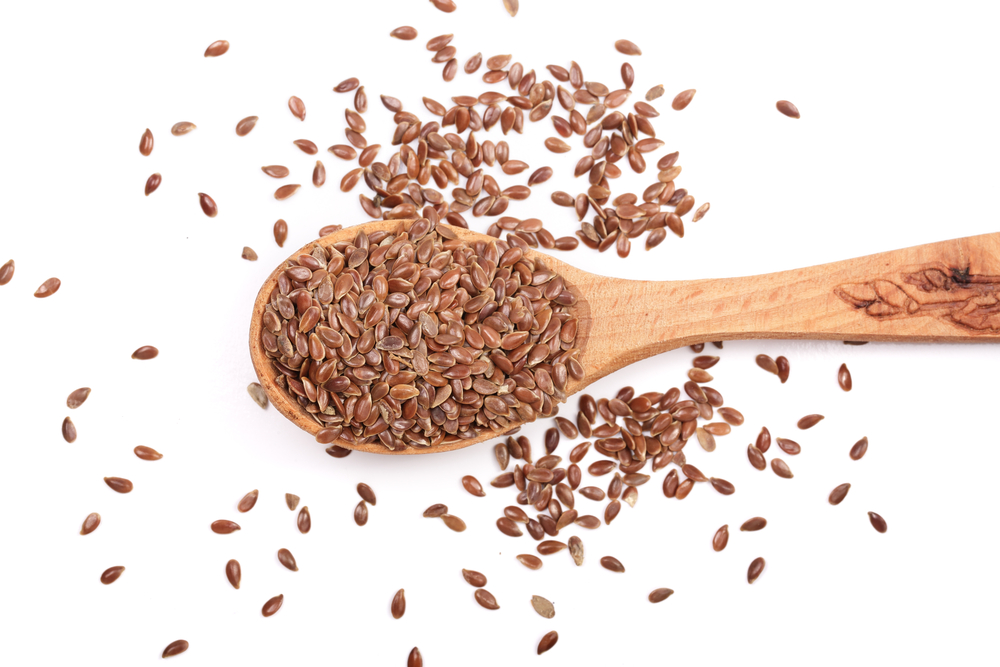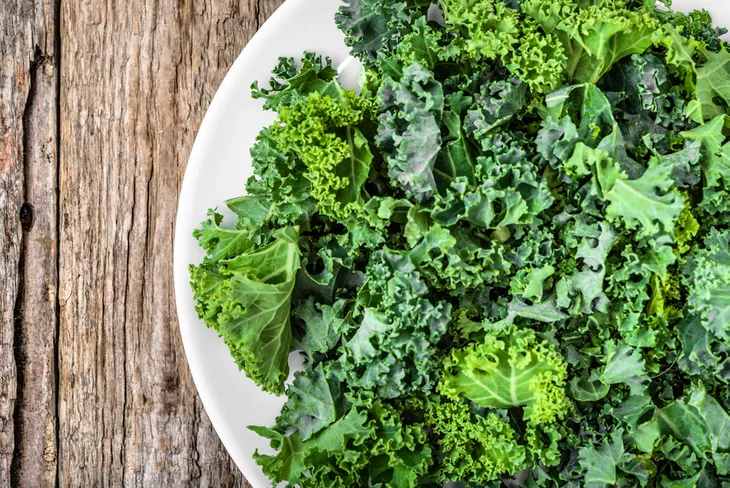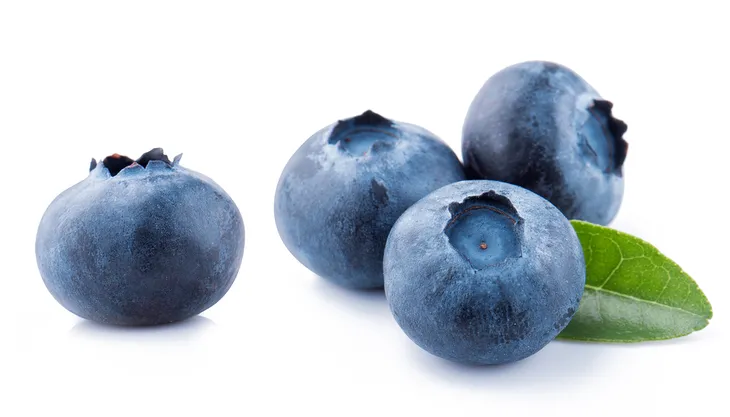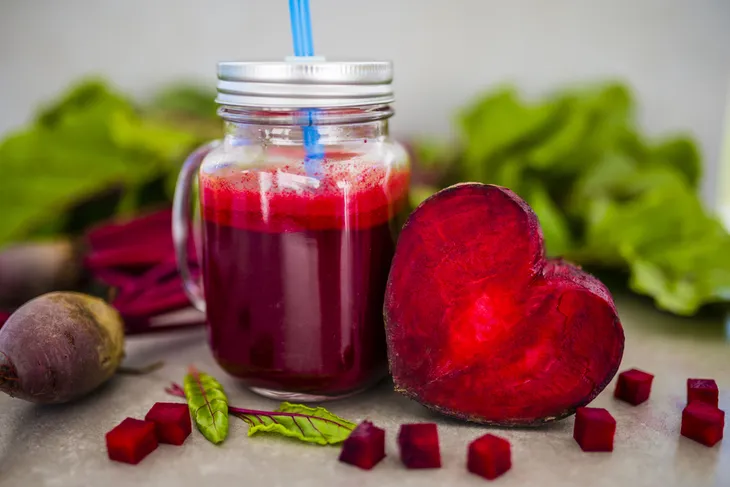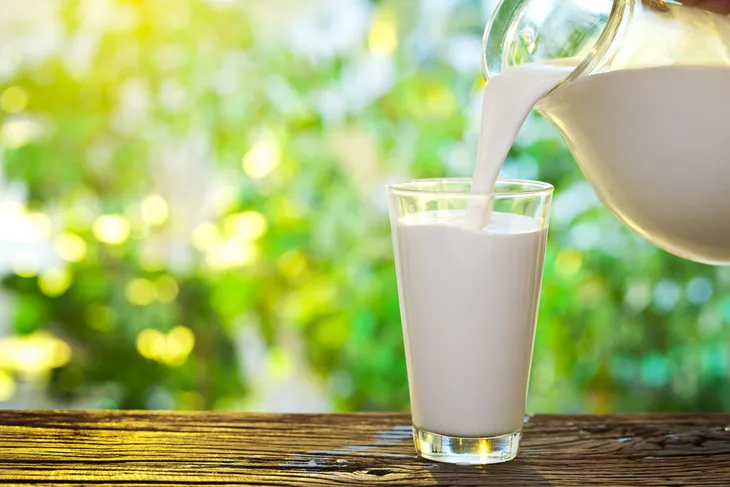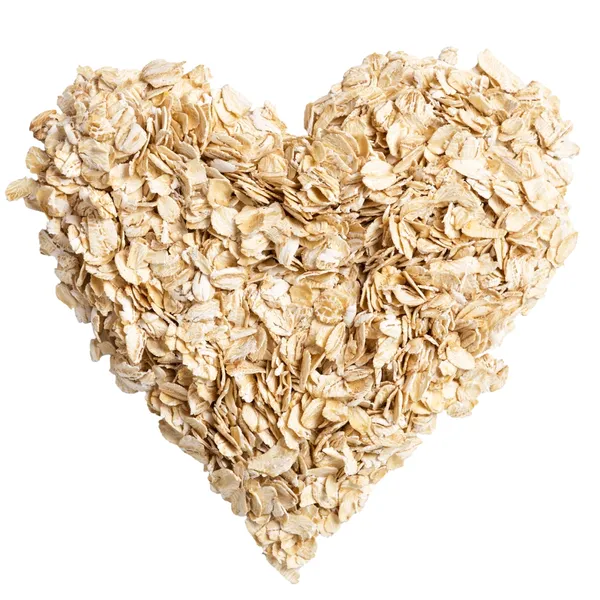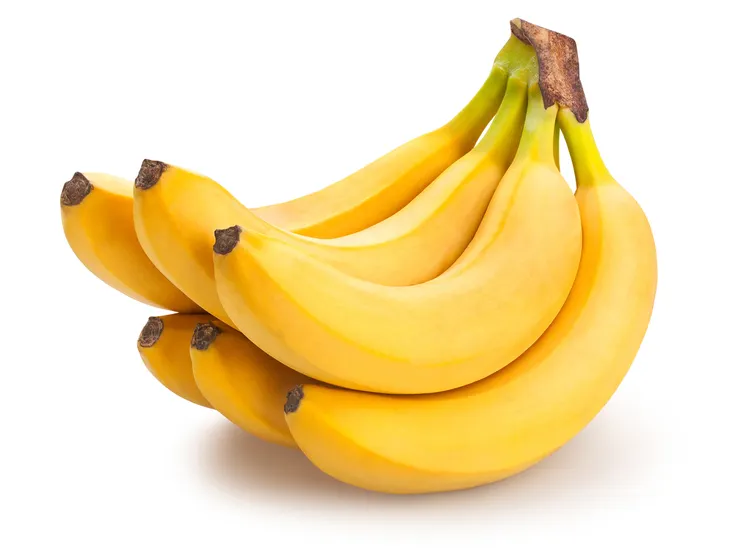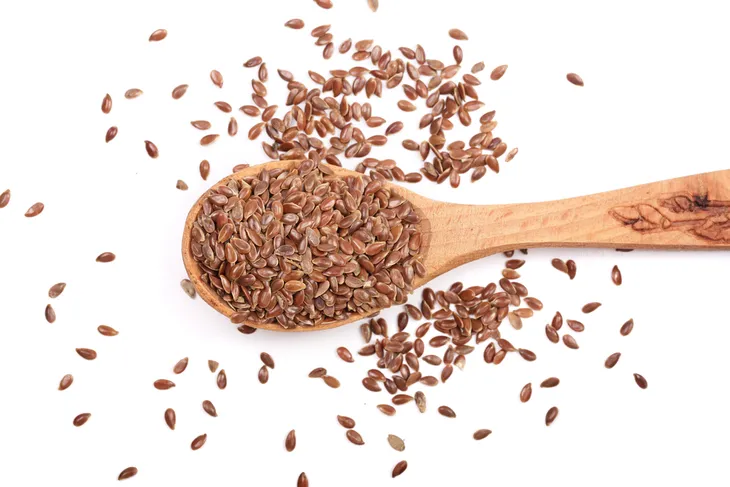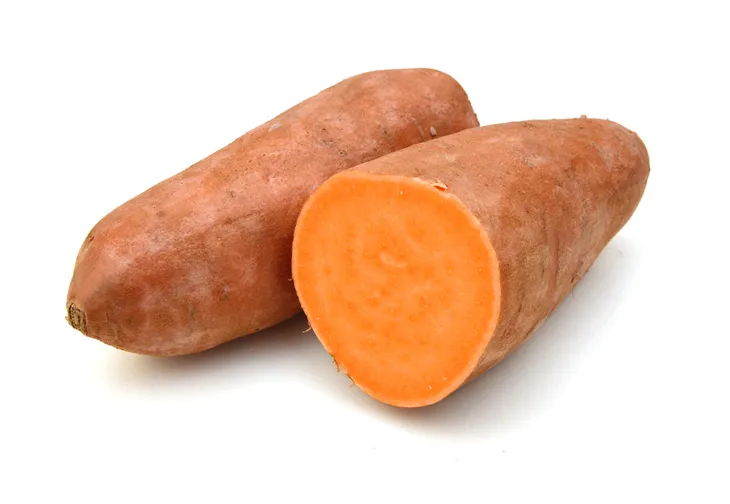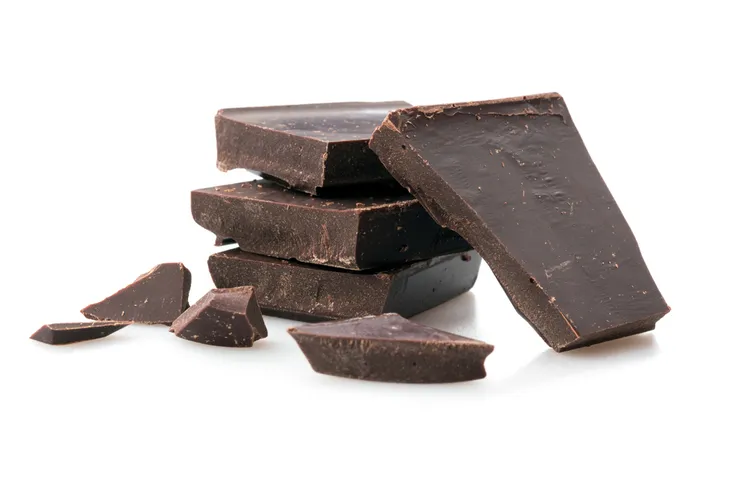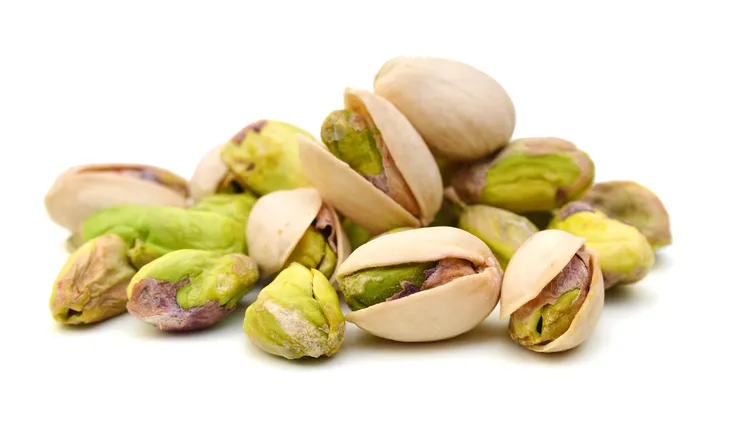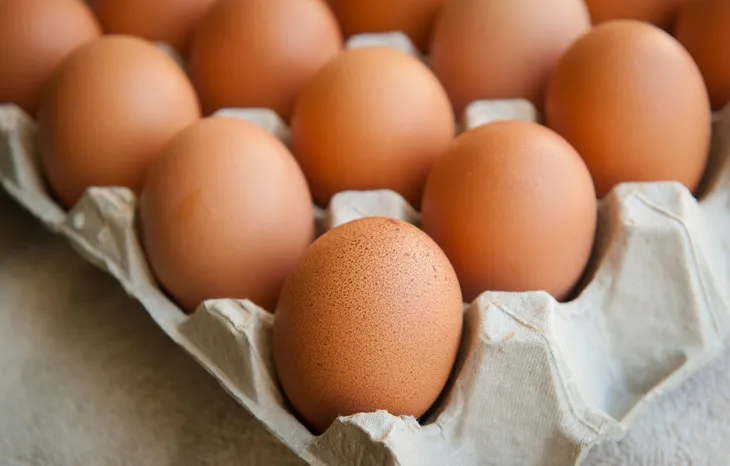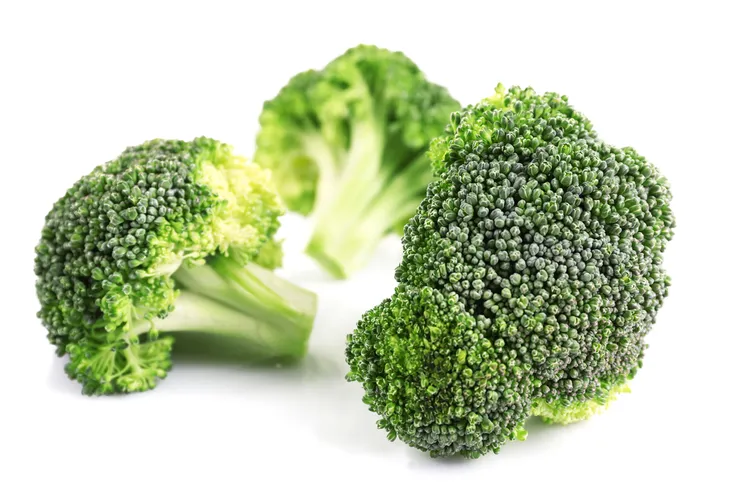High blood pressure is one of the biggest health threats to Americans, as it can lead to strokes and heart attacks. However, while many people already know that, few are aware their blood pressure is high (unless their doctor tells them) because there are usually no symptoms.
While leading an active lifestyle and cutting out smoking will most likely have a positive impact on hypertension (the medical word for high blood pressure), there are also some foods that are especially effective in taking off some pressure. Here are 13 of them…
1. Go Green
Eating your leafy greens has many nutritional benefits, but Healthline also notes it can help combat high blood pressure. Turns out Romaine lettuce, kale, spinach, and Swiss chard (among others) contain high levels of potassium, which in turn helps your body remove salt through urine. Less sodium means lower blood pressure, it adds.
It warns that canned vegetables can have added sodium, but be as rich in nutrients as their fresh counterparts (and easier to store frozen.) “You can also blend these veggies with bananas and nut milk for a healthy, sweet green juice,” it suggests.
2. Be Merry With Berries
EatThis.com mentions two berries specifically for their blood pressure-lowering capacity: blueberries and strawberries. It says blueberries are low-glycemic (meaning they won’t spike your blood sugar), rich in fiber, and also high in something called resveratrol, which the source says has been found to reduce blood pressure – at least in animal testing.
Meanwhile, strawberries also possess the ability to lower your blood pressure to normal range, adds the source. It says the popular fruit also contains resveratrol, which not only lowers blood pressure, but prevents “dangerous enlargement of the heart muscle in mice and rats, making it a great addition to any hypertension-fighting diet.”
3. Beet Hypertension
Reader’s Digest says that beet juice (mixed with a bit of apple juice) has been shown to lower resting blood pressure, as well as help improve endurance in athletes (when consumed prior to activity).
At the same time, the source says the nitric acid in beets helps generate improved blood flow through the body, which could benefit older adults in particular. It explains that research has shown that those who follow a “high-nitrate diet” with beet juice included had better blood flow to the frontal lobe of their brain.
4. Don’t Skim Milk From Your Diet
Healthline explains skim milk is both rich in calcium and low in fat, a great recipe for lowering blood pressure (and keeping bones and teeth healthy). If you’re not much into milk, you can get the same benefits from yogurt, it adds.
Speaking of yogurt, the source cites information from the American Heart Association that shows women who eat it are five or more times per week have 20-percent lower risk for developing high blood pressure. Just try to make it sure the yogurt doesn’t have added sugar.
5. Sow Your Wild Oats
We’re not saying you should go ride a motorcycle into the sunset (unless you really want to), but more accurately we’re saying you should start your day with some oatmeal – because it’s good for you.
Oatmeal is a great nutrient source, and is also low in fat while high in fiber, adds the source. It suggests trying “overnight oats,” which are made by soaking 0.5-cups of rolled oats and 0.5-cups of nut milk in a jar overnight. Before you dig into it in the morning, add in berries, granola, and cinnamon for added flavor.
6. A-Peeling Health Benefits
Bananas have been called “the perfect food,” and perhaps for good reason – not only will you get many essential vitamins and nutrients from these delicious fruits, you’ll also lower your blood pressure thanks to the potassium content, says Reader’s Digest.
The source notes just one banana contains 420-milligrams of potassium, which is around 11-percent of your daily recommended intake based on American Heart Association guidelines.
7. Go Fish
If you’re an angler, then maybe aim for salmon if your goal is to lower your blood pressure. EatThis.com explains that although salmon is a “fatty fish,” it is loaded with omega-3 fatty acids, which are heart-healthy and can reduce inflammation.
Another benefit, of course, is that this fish can help you get your blood pressure into an acceptable range, adds the source. It backs this up with research published in the British Journal of Nutrition that shows omega-3 supplements reduced blood pressure among older subjects as well as those with hypertension. Mackerel is also a good fishy source of omega-3.
8. Plant Seeds of Healthiness
Reader’s Digest says that flaxseed in particular is beneficial for getting your blood pressure readings to drop into normal range. But you don’t have to eat handfuls of flaxseed for this effect – the source says you can sprinkle ground flax into your favorite dishes.
The source cites a study published in the journal Hypertension that shows participants with hypertension and peripheral artery disease that at about 1-ounce of flaxseed per day significantly reduced their blood pressure after a six month period.
9. Start Digging Potatoes
In their non-fried form, potatoes can deliver a lot of health benefits – including lowering your blood pressure, according to Prevention. The source says one medium sized sweet potato (with the skin intact) delivers 15-percent of your daily intake of potassium (and 10-percent without the skin).
The same potato will deliver other essential nutrients such as 4-percent of your daily requirement of calcium and eight percent of your requirement for magnesium, it adds. Sweet potatoes are also ideal as an addition to smoothies, reminds the source.
10. Brighten Your Views on Dark Chocolate
While we’ve been told over and over that chocolate is a sinful snack, it’s not so much the case when you’re eating reasonable amounts of dark chocolate. EatThis.com says flavanoids in real dark chocolate, which are a pigment from plants, have been linked to lower blood pressure.
The reason for this benefit is the ability for these flavanoids to improve “endothelial function,” says the source, which cites research from the University of Manitoba. The endothelium is the thin lining of the heart and blood vessels that plays a role in relaxing and contracting blood pathways.
11. Stash Some Pistachios
These delicious snacks, which are actually a member of the cashew family, can regulate blood pressure by reducing “peripheral vascular resistance,” which is less blood vessel tightening, as well as a more controlled heart rate, says Healthline.
It suggests many other ways to eat pistachios rather than eating them on their own (which is perfectly fine), including adding them to crusts, putting them into pesto sauces, or dropping them in salads.
12. Get Cracking on Eggs
Good ol’ eggs can be consumed in many different ways, and your heart will probably thank you for it, says EatThis.com. While eggs may get a bad rap because of cholesterol content, newer research says these “protein powerhouses” can actually help control cholesterol and blood pressure.
The source cites findings in the American Journal of Hypertension that show a high-protein diet that includes eggs can naturally lower blood pressure while also promoting weight loss. Try to avoid condiments like ketchup and hot sauce that can take away from the blood pressure benefits, it adds.
13. Bite into Broccoli
It’s not everyone’s favorite food, but your mom was right when she told you to eat it. Maybe you didn’t thank her when you were a kid, but now that you’re getting a bit older, the health benefits can become more obvious (call your mom).
Prevention says one cup of cooked broccoli gives you 14-percent of your daily dose of potassium, along with 8-percent of magnesium and 6-percent of calcium. As an added bonus, the source notes this cruciferous vegetable is a good source of “cancer-fighting phytonutrients” called glucosinolates.
